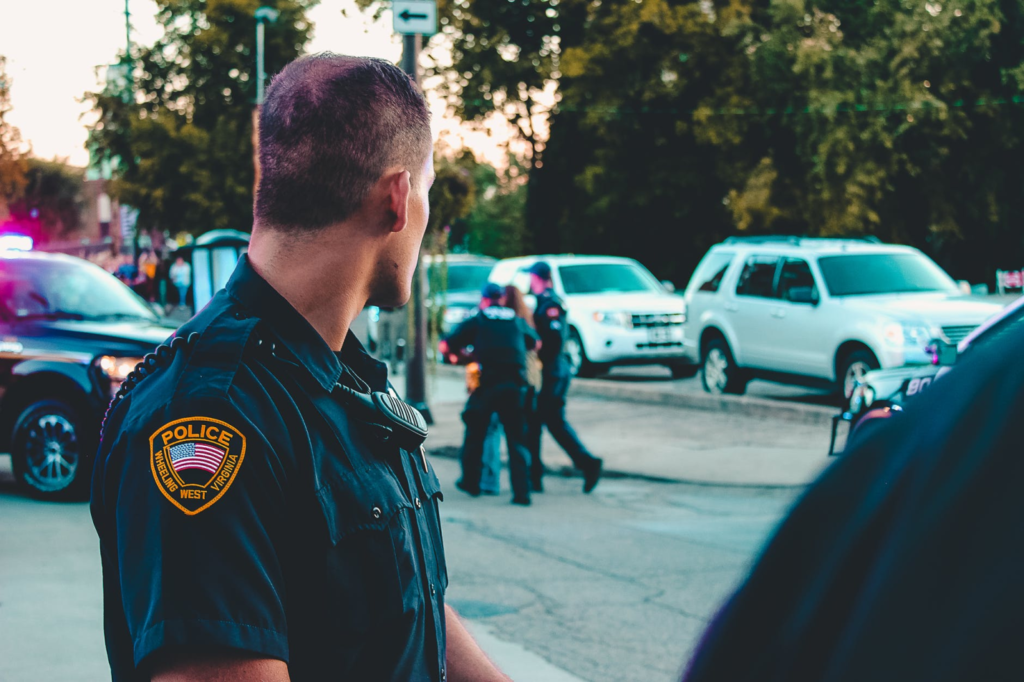
- admin
- March 10, 2020
- 1:15 pm
- No Comments
What Is the Best Job to Get Before Becoming a Cop?
The thought of pursuing a career in law enforcement usually invokes visuals of car chases and police officers surrounding an abandoned building, negotiating with criminals using a megaphone.
Pop culture has a way of glamorizing law enforcement jobs and overlooking the emotions, sacrifices, and all the boring paperwork that come with the job. That’s right, there’s a lot more to being a police officer than just knowing how to use a gun and fighting the “bad guys.”
Police officers work for the people, so they need to know how to communicate effectively with them. Aside from physical strength and agility, police officers must possess a variety of soft skills that allow them to negotiate, extract information and earn the trust of those they interact with.
Although you don’t necessarily need prior work experience to apply to the academy, having certain jobs can make you a more impressive candidate.
If you would like to become a cop eventually, here are some jobs that can prepare you for the job:
Security Guard
Security guards have a lot of responsibility on their shoulders.
Whether they’re guarding a politician’s mansion or a warehouse for a large corporation, they’ll be held responsible for any security mishaps.
Depending on what they’re guarding, a security guard may even carry a lethal weapon. Police academies do look at how experienced applicants are with weapons, so this is a bonus. Security guards also learn how to screen individuals to know when someone needs to be questioned further, which is a great skill for those in policing.
In 2010, security guards had a median salary of $23,920—a decent job for people that don’t have a college education. Since police academies usually require candidates to complete a specific number of college credit hours, applicants can try working as a part-time security guard while they complete their requirements.
Correctional Officer
Correctional officers aren’t considered to be police officers. They work in prisons and jails all over the country and help maintain order among inmates in those the facilities. Correctional officers are regularly exposed to violence and danger on the job, and working with inmates closely is both physically and emotionally taxing.
By working as a correctional officer, you’ll learn to develop resilience and handle issues between inmates. Correctional officers regularly interact with inmates. These officers are also responsible for filing important paperwork. Unless a correctional officer is part of a special task force, they don’t carry weapons.
Correctional officers earn a median annual salary of $40,000. These officers are also expected to obtain a Bachelor’s degree if they intend to work in a federal prison.
Military
Being in the military gives you a substantial edge over applicants who don’t have any combat experience. Of course, joining the military comes with risks; however, the experience is incredibly useful.
The military will prepare you for combat. You’ll learn how to spot suspicious behavior and pick up crucial leadership and communication skills—all of which are needed to be a great officer.
These jobs will give you the experience, training, and background that police academies are looking for.
Educational Requirements
Other than looking for jobs that make you stand out among other applicants, your educational background will also influence the academy’s decision.
Generally, academies don’t require applicants to have Bachelor’s degrees; however, many of them do ask candidates to have at least 60 college credit hours.
Candidates can opt for criminal justice programs that will provide them with a solid background. Certifications in law enforcement will also help strengthen your application.
Languages
Aside from meeting educational requirements, being multilingual will make you a better candidate for the academy too.
What You’ll Learn in Police Academy
To become a police officer in the US, you’ll have to complete training in a police academy. The academy will cover all aspects of the job, including physical training, driving maneuvers, combat, first aid techniques, and arrest methods.
Training can be anywhere between 10 and 20 weeks long, depending on the academy you’re in.
Civil Services Exam
Before applying to the academy, you will be required to pass a civil service exam. The purpose of the civil service exam is to assess whether you’re physically and mentally fit to be a police officer. Each civil service exam is tailored to the needs of the state and the sector you’re applying to; a civil service exam for aspiring police officers in New York is very different from the exam in Texas, for example.
Civil service exams test your skills in various areas, including writing, reading, comprehension, critical thinking abilities, reasoning, problem-solving, and even math.
If you’re taking a civil service exam, its best to sign up for preparation courses that teach you how to approach all sections of the test.
Civil Service Success – Suffolk County Police Exam
Civil Service Success offers a three-session prep course for the Suffolk County Police Officer Exam. The class will familiarize applicants with all parts of the exam, including reasoning ability, cognitive ability assessments, and questions related to work experience, educational background, and personal traits.
Other than preparing you for the exam, we’ll also give you information about the hiring process in academies and provide you with pointers that will make you a more impressive applicant.
If you’re interested in becoming a police officer in Suffolk County or a civil servant in other sectors in New York, sign-up for our preparation courses today. Our instructors prepare applicants for NYS Court Officer Exams, NYC Sanitation Exams, Suffolk County Police Exams and more.


